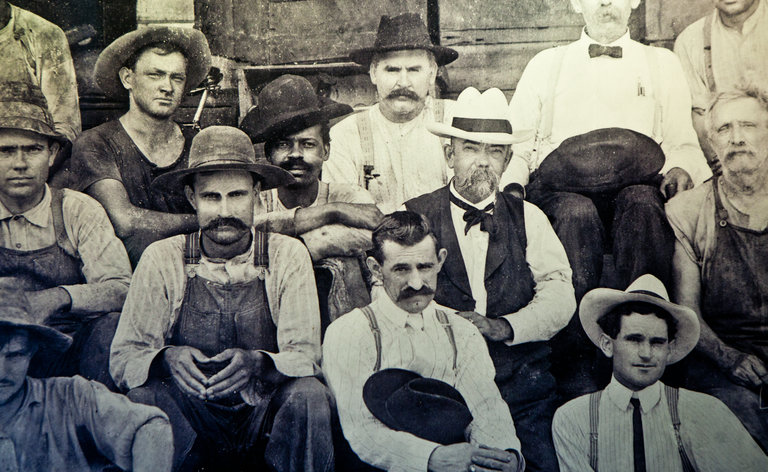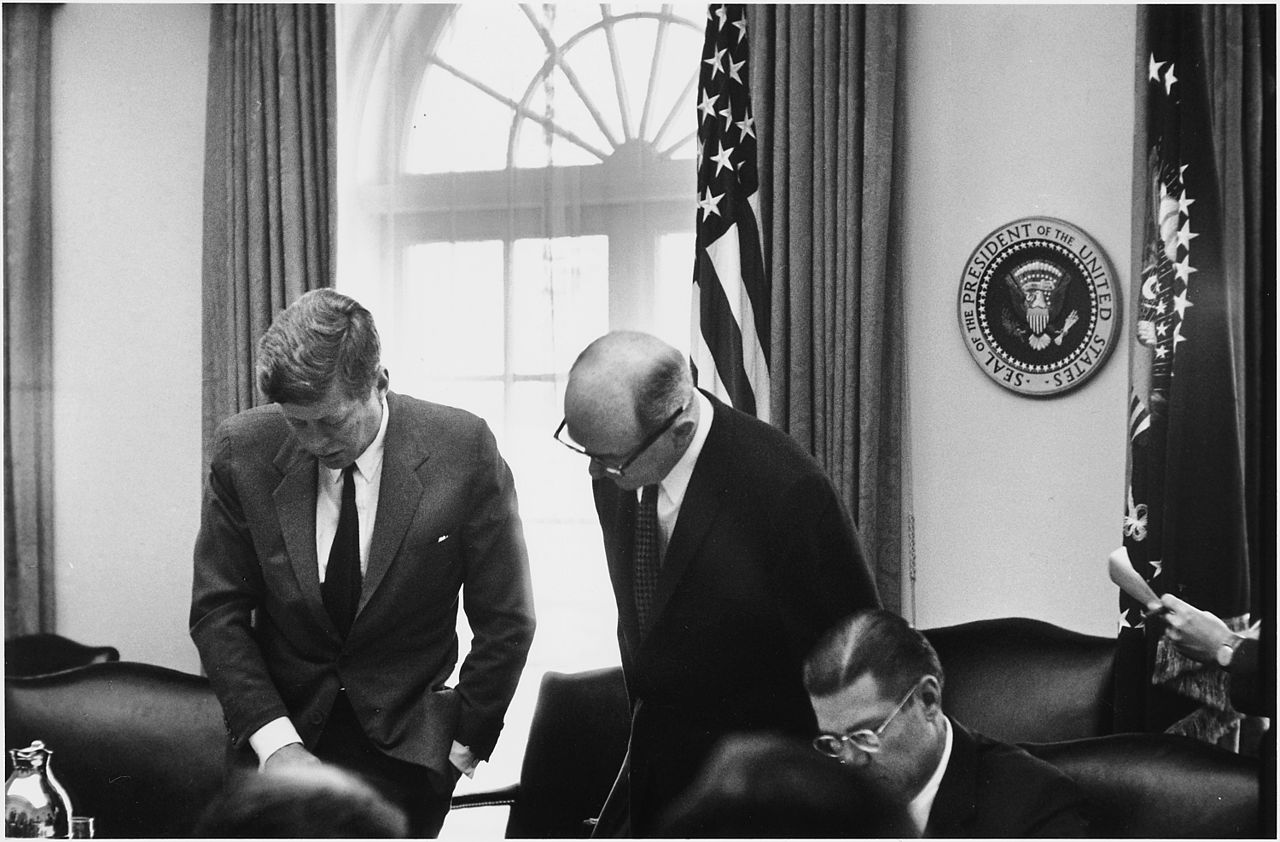I love how its possible to recreate historical worlds for people to explore and get a sense of change by using games like Minecraft.
Source: Experience the Great Fire of London Via Minecraft | News & Opinion | PCMag.com
I love how its possible to recreate historical worlds for people to explore and get a sense of change by using games like Minecraft.
Source: Experience the Great Fire of London Via Minecraft | News & Opinion | PCMag.com
Interesting story about how women are the most talked about people in pop music, but they’re still the minority of creators.
Source: Even Beyoncé can’t fix what’s wrong with the Top 40 | Fusion
I’m going to predict that the number of history majors starts to rise this year and will continue as long as Hamilton stays red-hot on Broadway (and we don’t go into another economic decline).
Source: The unusual way Broadway’s ‘Hamilton’ is teaching U.S. history to kids

Even if Jack Daniel’s is only doing this as a marketing move, I love how it acknowledges some of the real accomplishments and influence of slaves in creating Southern culture/life.
On its 150th anniversary, the Tennessee whiskey distillery concedes that its official history didn’t tell the whole story of its origins.
Source: Jack Daniel’s Embraces a Hidden Ingredient: Help From a Slave – The New York Times
 Jimmy Page and Robert Plant were found not guilty of stealing the guitar rift for Stairway to Heaven from the song Taurus by Spirit. There probably is enough difference that you can’t PROVE their guilt, but it is pretty darn similar. I’ve linked to Taurus so you can judge for yourself.
Jimmy Page and Robert Plant were found not guilty of stealing the guitar rift for Stairway to Heaven from the song Taurus by Spirit. There probably is enough difference that you can’t PROVE their guilt, but it is pretty darn similar. I’ve linked to Taurus so you can judge for yourself.
Source: The Latest: Led Zeppelin thankful ‘Stairway’ rift is settled
This might be one of best uses of digital scraping/analysis ever. Every Noise at Once is an algorithmically-generated, scatter-plot of the musical genres based on the 1467 genres by Spotify. You can see the relation between different genres and search for how groups are categorized too.
I once got a record pulled from a jukebox at my favorite college bar by playing it a dozen times in a row.
The story of Louis Glass, the original jukebox hero.
Source: How the Jukebox Got Its Groove
Gotta love when a song is so popular, but the band so little known that a fake group can claim their identity and tour the U.S.
Source: The True Story Of The Fake Zombies, The Strangest Con In Rock History
I had my students watch part of the PBS documentary on Huey Long today. I don’t think most of my class new much about Long despite the The Simpsons referring to Long’s assassination in Season 11, Episode 12 – You can watch the entire thing here.
Great story on the build up to the release of 50 Cent’s and Kanye’s Sept. 11, 2007 albums that went head to head in a sales battle and changed hip-hop forever.
Source: The Day Kanye West Beat 50 Cent
This article looks at some of the issues archives run into when the digitize documents by look at Netherlands spent seven years and $202 million project.
Source: The Trouble With Digitizing History
Very interesting article by Nick Danforth on how Barbara Tuckman’s book, The Guns of August, helped convinced John F. Kennedy to not let the Cuban Missle Crisis turn into a nuclear war.
 Source: Can History Save the World? – War on the Rocks
Source: Can History Save the World? – War on the Rocks
President Obama’s rhetoric about history in his eulogy at the funeral of the Rev. Clementa Pinckney at the College of Charleston’s campus.
Reverend Pinckney once said, “Across the south, we have a deep appreciation of history. We haven’t always had a deep appreciation of each other’s history.”
What is true in the south is true for America. Clem understood that justice grows out of recognition of ourselves in each other; that my liberty depends on you being free, too.
That — that history can’t be a sword to justify injustice or a shield against progress. It must be a manual for how to avoid repeating the mistakes of the past, how to break the cycle, a roadway toward a better world. He knew that the path of grace involves an open mind. But more importantly, an open heart.
Source: Transcript: Obama delivers eulogy for Charleston pastor, the Rev. Clementa Pinckney
At times I get the feeling that my colleagues in math and the sciences don’t value the type of learning and knowledge that is taught in history, literature, and political science. I’m really pleased to see this group of engineering faculty standing up for the idea that their students will be less valuable as employees (and perhaps as members of society) with a general education that doesn’t require coursework in the humanities.
Of course at the heart of this change is the idea of ‘accreditation’ and having demonstrable learning competencies. This is just one of hundreds of examples of how the demand that colleges “prove” students know something is actually weakening students’ educations.
If anything deserves to be mocked it is the competency based model of assessing student learning in higher education.
We should speak of it as an attack on history, which it was. This was the church founded by Denmark Vesey, who planned a slave revolt in 1822. Vesey was convicted in a secret trial in which many of the witnesses testified after being tortured. After they hung him, a mob burned down the church he built. His sons rebuilt it. On Wednesday night, someone turned it into a slaughter pen.
We should speak of it as an assault on the idea of a political commonwealth, which is what it was. And we should speak of it as one more example of all of these, another link in a bloody chain of events that reaches all the way back to African wharves and Southern docks. It is not an isolated incident, not if you consider history as something alive that can live and breathe and bleed.
Source: Charleston Shooting: Speaking the Unspeakable, Thinking the Unthinkable

Roger Casement a British consul official to the Congo used the following terms to criticize his superiors in 1903.
I’m very curious about what exactly would make a noodle incompetent.
Source: Adam Hochschild, King Leopold’s Ghost (1999).
Story provides insights on how the top albums are now calculated and those performers and industry leaders who aren’t happy about it.
Source: The End Of Album Privilege – BuzzFeed News
The A.V. Club examines a song that went to No. 1 on the Billboard charts to get to the heart of what it means to be popular in pop music and why The Rembrandts’ hated it.
Source: The Rembrandts’ “I’ll Be There For You” was a golden albatross · We’re No. 1 · The A.V. Club
This is the story of the secretary of the Manhattan Project who was born in Kansas City and graduated from Smith College. She was living in Santa Fe when approached to become a secretary for ‘Project Y’.
Source: Dorothy McKibbin: The Manhattan Project’s Secret Weapon | Atlas Obscura
I have never been a big fan of House Music but you can’t doubt its influence of popular music. Below is the track that seemingly started it all.
You can see the final footage of the Amelia Earhart before she went missing during her attempt to fly around the world.
Source: Watch footage of Amelia Earhart from 1937 – Boing Boing
Interesting story and documentary about what it was like working for Columbia House in the 1990s. One of the most interesting points is how the music industry helped create the digital ‘sharing’ of music through their marked-up CD sales.
Source: Four Columbia House insiders explain the shady math behind “8 CDs for a penny”
A Dartmouth faculty member has produced an APP that monitors student behavior – study time, partying, sleeping, exercise, etc. – to determine what a student’s GPA will be at the end of the semester. As far as I can tell, the APP has not been released to the public, but some of the take away points is that high performing students tend to limit conversations at the end of the semester and spend more time studying than partying.
Source: StudentLife Study
Interesting story about how the idea of authenticity in modern country music makes it difficult for women to be successful in the genre. Compares current stars to some of country’s past artists.
Source: The Marginalization of Women in Mainstream Country Music | The New Republic